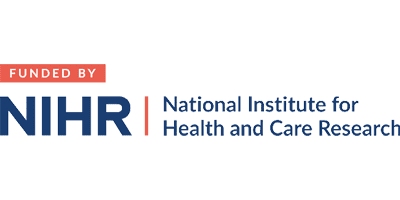A randomised controlled trial of a sexual health promotion intervention for people with severe mental illness delivered in community mental health settings.
Click the headings below to expand
What is the study about?
It is important for everyone to feel they have a fulfilling and safe sex life. This is no different for people with a severe mental illness and can be an important part of building a life after recovery.
Having good sexual health includes:
– Being free from sexually transmitted infections
– Being able to express your sexuality and sexual identity
– Feeling safe and respected in intimate relationships
– Being in control of choices you make and what you feel comfortable with
We think there are a number of areas that could help improve a person’s sexual health, including:
– Access to contraception and family planning
– Understanding risky sexual behaviours and sexual health implications
– Keeping safe from sexual infections
– Having a fulfilling relationship free from abuse
Our study team wants to find out if having sexual health information sessions with a specially trained health professional can improve the sexual health of people with a severe mental illness, compared to usual care alone. These sessions would involve talking through sexual health issues, providing information about healthy sexual activities, and discussing where to get help and advice.
Who is being asked to take part in this study?
People aged 16 and over with a severe mental illness who receive care from an NHS community mental health service that has agreed to be part of this study are being invited to take part.
This study has been carefully designed for people who receive support from an NHS community mental health service and have a diagnosis of a severe mental illness. Not everyone who expresses an interest in the study will be eligible to take part.
You may have already been approached by your mental health community team and completed a consent to contact form. If you have not already completed a consent to contact form, and you are interested in taking part in this study, please go to the ‘Get Involved’ page and complete the form. Filling in the form does not mean you are signing up for the study or have to take part; it is simply to express your interest in finding out more.
Once you have completed this form, we will contact your care provider at your NHS community mental health service to inform them that you have expressed an interest in the study. They will then confirm if you are eligible. If you are eligible one of our researchers will then get in contact with you to further discuss the study and answer any questions you may have.
What are we doing?
For us to be able to find out if receiving sexual health information sessions improves sexual health in people with a severe mental illness, we need to collect and compare information from two groups of people: 1) people who attend sexual health information sessions with a specially trained health professional, along with continuing their usual care and 2) people who do not attend sexual health information sessions and continue with their usual care. Both types of groups are equally important to us.
People who are eligible to take part will be randomly allocated to be in either the sexual health information sessions group or the usual care group. A computer programme will randomly choose which group people are put in. This is a bit like flipping a coin to decide. It means everyone who takes part will have an equal chance of being in either of the two groups.
Sexual health information sessions group
People allocated to be in the sexual health information sessions group, in addition to continuing with their usual care and support that is usually available to them, will have three sexual health sessions with a specially trained health professional. Each session will last approximately 1 hour.
During these three sessions the health professional will discuss with participants things, such as:
Understanding sexually transmitted infections
Condoms and contraception
Safer relationships, including assertiveness skills and negotiating skills relating to the type of sexual relationships you want to have
Usual care group
People allocated to be in the usual care group (sometimes also known as the ‘control group’), will continue with their usual care and support that is usually available to them. In other words, it is ‘business as usual’ and no additional care or treatment will be provided as part of the study. However, being in the usual care group is an important role in the study and this continued involvement helps us to assess whether the sexual health information sessions are helpful in addition to usual care.
Completing questionnaires in the trial
Everyone taking part in the study will be asked to complete questionnaires to collect data on information related to sexual health, including being asked about sex, relationships and contraception.
The questions asked are very important because they allow us to see if there are any differences between the people who receive the sexual health information sessions and the people who continue with their usual care alone.
Participants will be asked to complete questionnaires at the beginning of the study and 3,6,9, and 12 months later. Some of the questions can be self-completed by the participant and some questions the study team will ask the participant in a meeting either face-to-café or by video call. Each time a participant completes a self-completed questionnaire, they will receive a £10 shopping voucher.
Interviews
We would like to interview a few people who agree to take part in the study. These interviews will help us understand what works in terms of addressing sexual health needs for people with a severe mental illness. Everyone taking part will be asked if they would like to be interviewed.
How do I take part?
If you are over the age of 16, receive care from an NHS community mental health service that has agreed to be part of this study and are interested in taking part, please go to our ‘Get Involved’ page and complete the consent to contact form. Filling in the form does not mean you are signing up for the study or have to take part; it is simply to express your interest in finding out more.
Once you have completed this form, we will contact your care provider at your NHS community mental health service to inform them that you have expressed an interest in the study. They will then confirm if you are eligible.
If you are eligible one of our researchers will then get in contact with you to further discuss the study and answer any questions you may have.
If you are eligible and agree to take part in the study, you will be asked to complete a consent form. The study team member will then need to go through some questionnaires with you. This will take approximately 1 hour.
If you are not eligible to take part, we will let you know that we are unable to offer you a place in the study and why.
Who is funding and organising this study?
This study is funded by the National Institute for Health Research Health Technology Assessment programme (project number NIHR133865).
It is sponsored by Glasgow Caledonian University, in collaboration with University of York (York Trials Unit), University College London, Leeds and York Partnership NHS Foundation Trust, Guys and St Thomas’ NHS Foundation Trust and East London NHS Trust. All research in the NHS is looked at by an independent group of people called a Research Ethics Committee. They are there to protect your safety, rights, well-being and dignity. This research has been reviewed and given a favourable opinion by North West – Preston Research Ethics Committee, IRAS project ID: 309345. This study has also been approved by the Health Research Authority (HRA) which is the governing body that looks over research to make sure that it is ethical and legal.



